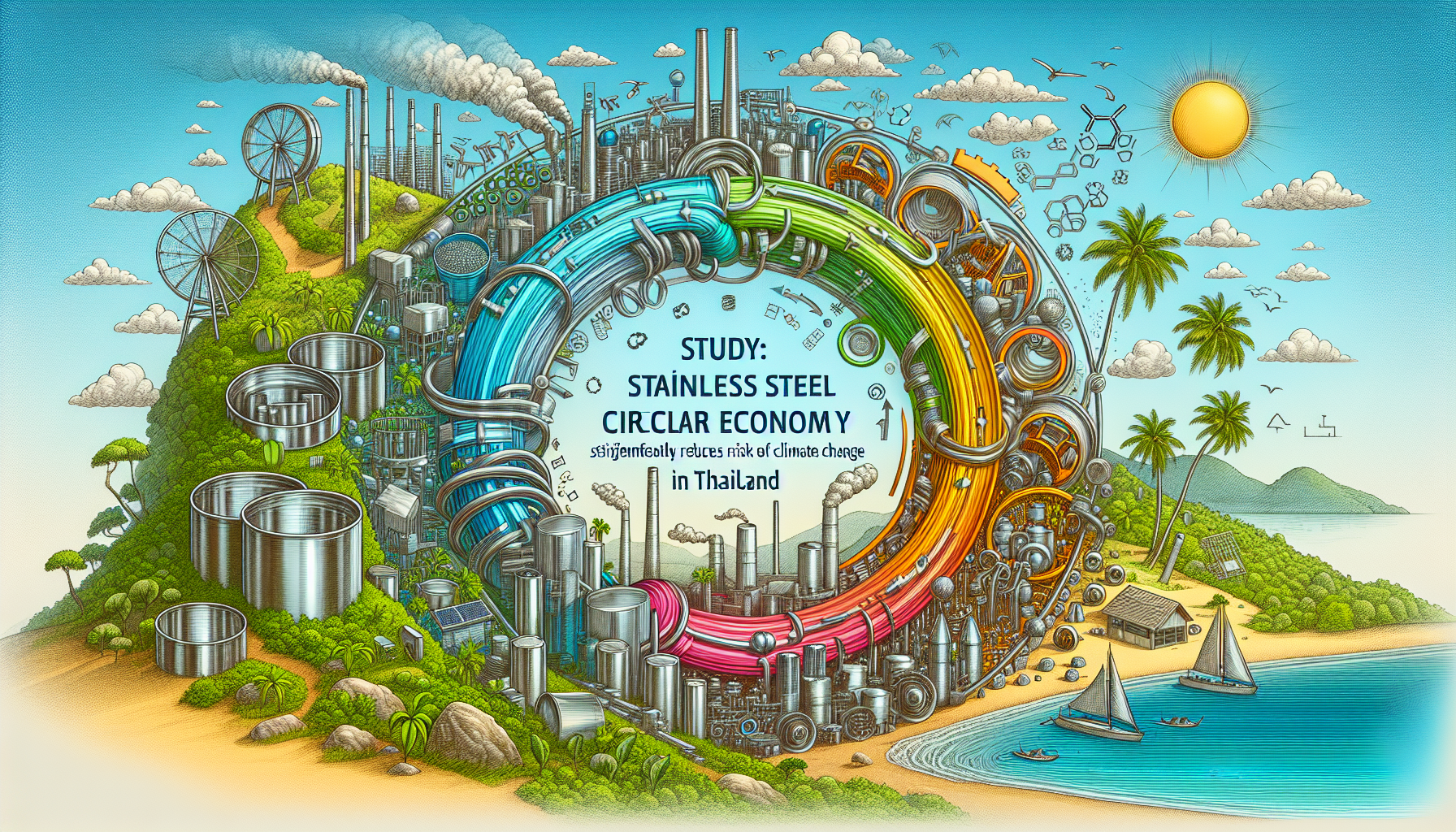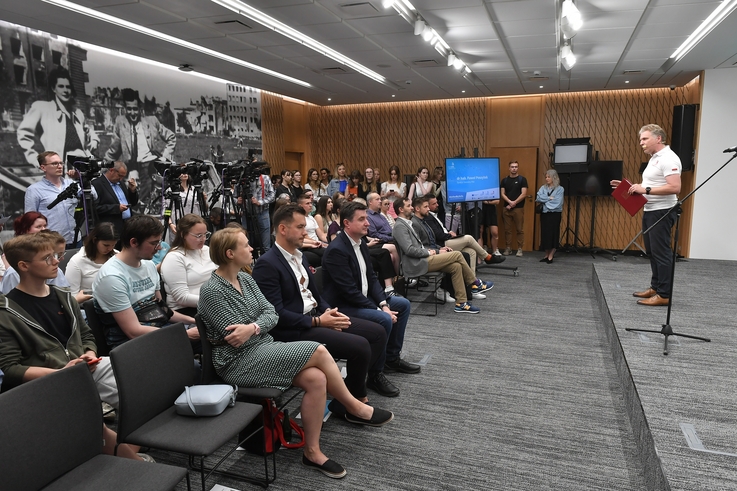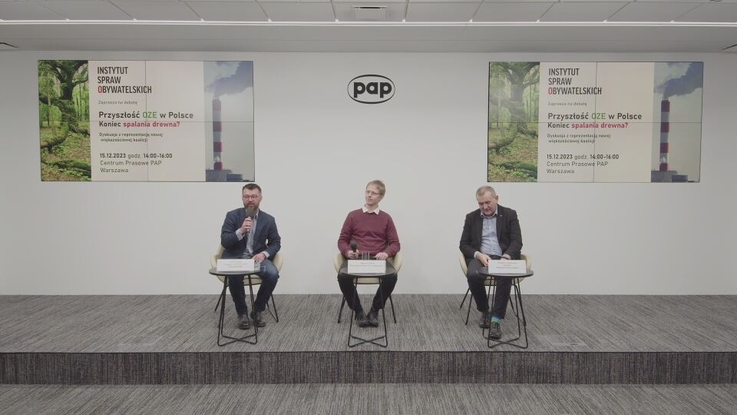Rozszerzona współpraca z firmą Cognizant umożliwi dalsze świadczenie usług zarządzanych na platformie chmurowej dla Pon IT i jej wielu jednostek operacyjnych, co przyczyni się do zwiększenia elastyczności, intuicyjności i innowacyjności.
The C02 savings are equivalent to the annual CO2 footprint of almost the entire population of the Muang Chachoengsao district.
Thailand is facing significant impacts from climate change, ranking 9th in the global long-term climate change risk index.
– The effects of climate change are already being felt in Bangladesh, with rising sea levels and increasing temperatures threatening the country’s food security and infrastructure.
It is essential for policymakers to establish a strong framework that supports the development of a professional circular economy, ultimately contributing to climate protection.
– We need to encourage innovation and investment in sustainable technologies to drive the transition towards a more circular economy.
Recent research conducted by a team of Thai and German scientists has shown that increasing the recycling of stainless steel can significantly help mitigate climate change, both in Thailand and globally. The study, commissioned by Oryx Stainless (Thailand) Co., Ltd., and coordinated by the Fraunhofer Center for International Management and Knowledge Economy IMW from Leipzig, Germany, found that for every ton of stainless steel scrap used to produce new stainless steel, 6.71 tons of CO2 are saved compared to the use of primary raw materials.
Oryx Stainless, a leading supplier of recycled stainless steel with five sites in Asia and Europe, handles a significant amount of stainless steel scrap in Thailand. The scientists estimate that this resulted in CO2 savings of 556,000 tons, which is approximately equivalent to the annual CO2 footprint of the inhabitants of the Muang Chachoengsao district, or 1.45 percent of the total greenhouse gas emissions from all industrial processes in the country. These findings demonstrate the significant potential for Thailand to make a positive impact on the climate by increasing stainless steel recycling.
Link to the picture is accessible at AP’s multimedia newsroom partner, News Aktuell: https://apmultimedianewsroom.com/multimedia-newsroom/partners/news-aktuell
Thailand is facing significant challenges due to climate change, ranking 9th in the global long-term climate change risk index. The country is highly exposed to natural hazards such as heat waves, droughts, floods, cyclones, and storm surges, with floods posing the greatest threat in terms of frequency and damage. As one of the ten most flood-affected countries in the world, the fight against climate change holds particular importance for Thailand as it continues to suffer greatly from the effects of global warming.
The economic impact of climate change has been mitigated by Oryx Stainless Thailand Co., Ltd. through the reintegration of stainless steel scrap into the production cycle. This action has resulted in a savings of approximately 1.9 billion Thai baht, equivalent to over 50 million US dollars, as calculated by Thai and German scientists. To put this into perspective, the amount saved is equivalent to the combined annual income of around 7,000 Thais.
The calculation is based on the „Scrap Bonus” indicator developed by the Fraunhofer Center for International Management and Knowledge Economy IMW, which was customized to Thai conditions by the international research team for the study. The indicator is calculated in two steps: first, quantifying the environmental impact avoided by using one ton of stainless steel scrap in steel production, and second, converting the avoided environmental impact into Thai baht using economic estimates and price references from emissions trading systems. In essence, a price is assigned to the (avoided) pollution.
„This study shows that the smart use of recycling raw materials such as stainless steel scrap and their use in the production of new products can make a tangible contribution to the fight against climate change. Stainless steel scrap is a particularly valuable secondary raw material due to its very high recyclability. Stainless steel can be recycled without any loss of quality. Worldwide, 95% of stainless steel is recycled at the end of its lifespan. 70% is recycled as stainless steel. Scrap currently accounts for around 48% of raw materials for stainless steel production worldwide. In Europe, leading stainless steel producers go to the limits of what is technically feasible and use up to 95% secondary raw material blends for the production of new stainless steel,” says Sirichai Tempoomsuk/CFO, Oryx Stainless (Thailand), Co., Ltd.
Emerging Market: Stainless Steel Production in Southeast Asia
Asia, excluding China and South Korea, has become a major player in stainless steel production with 7.79 million tons in 2023. The Southeast Asian steel industry, especially the stainless steel sector, is anticipated to expand its production capacities in the near future. Malaysia and Indonesia are among the countries expected to add millions of tons of new capacity. In 2022, Thailand produced approximately 366,000 tons of stainless steel and is also the second largest consumer of stainless steel in Southeast Asia.
„The growth perspective in Southeast Asia and thus in Thailand underlines the need for the smart use of our resources in view of the ongoing climate change caused by the emission of greenhouse gases. This is where politics is needed, also in Thailand. Smart recycling creates both economic and environmental benefits for Thai society. To take full advantage of these benefits, policy makers should ensure a level playing field for raw materials and provide favorable operating conditions for the recycling industry,” comments Christian Klöppelt, Research Fellow, Fraunhofer IMW as spokesperson for the research consortium.
Improving Recycling Framework and Climate Protection
The international researchers suggest implementing a pricing system for CO2 emissions in Thailand and expanding the Thai Bio-Circular-Green (BCG) Economy Model to include metal scrap. They also recommend creating better operating conditions for the recycling industry and urging the government to support research, development, and education initiatives in this area. The study will be presented to the public on Wednesday, March 27th, 2024, at the Hyatt Regency Bangkok Sukhumvit, Thailand.
Oryx Stainless Group, including its parent company Oryx Stainless Holding B.V., is a global leader in trading and processing scrap metal for the production of stainless steel. Our customers are stainless steel producers worldwide, while our supplier base is continuously expanding internationally. With operations spanning the globe, we prioritize delivering exceptional service and maintaining a smooth transport infrastructure, which we guarantee through our facilities in Europe and South-East Asia. Since 2012, Oryx Stainless has been operating in Thailand through Oryx Stainless (Thailand) Co., Ltd., and also has a subsidiary in Malaysia.
The Asian Institute of Technology (AIT), founded in 1959, is a renowned international institution that focuses on postgraduate studies in engineering, environmental sciences, and management. AIT’s wide range of academic programs, research projects, and practical engagement initiatives prepare its graduates for successful careers and leadership roles in Asia and around the world. Located just north of Bangkok, Thailand, AIT’s campus is surrounded by lush greenery, creating a peaceful and picturesque environment that fosters a diverse and cosmopolitan learning atmosphere. AIT’s commitment to sustainable development and societal progress has earned it global recognition. In the 2023 Impact Rankings, AIT achieved a commendable rank within the range of 201-300 out of 1,591 universities from 112 countries and regions, demonstrating its dedication to driving positive social change and promoting sustainable practices in all aspects of its work.
The project received permission from Mahidol University, Thailand on 14 February 1978 to develop into the Faculty of Environment and Resource Studies. Over the years, the Faculty has expanded its focus on curricula, research, seminars, conferences, and training programs. In 1983, the Faculty relocated from Ratchasupamitr, Bangkok to Salaya Campus, Nakhon Pathom province. The program provides graduates with the opportunity to acquire knowledge and skills to contribute to improving environmental conditions globally. Additionally, the program addresses the global paradigm shift towards sustainable development goals (17 SDGs), which are integrated into Thailand’s National Strategic Plan for 20 years (B.E. 2560-2580) and the National Plan of Economic and Social Development 13 (B.E. 2565-2569).
Asst. Prof. Ratchaphong Klinsrisuk, Ph.D.
The National Science and Technology Development Agency (NSTDA) of Thailand was founded in December 1991 as a government agency independent under the National Science and Technology Development Act 1991. NSTDA is under the authority of the Ministry of Higher Education, Science, Research and Innovation, with the Minister acting as the chair of NSTDA Governing Board.
NSTDA has been given the important responsibility of advancing science, technology, and innovation in Thailand to meet the needs of the industry and improve the country’s competitiveness in the global economy. This, in turn, will contribute to national economic and social development. Dr. Jitti Mungkalasiri
The Fraunhofer Center for International Management and Knowledge Economy IMW has over seventeen years of experience in applied socio-economic research in Leipzig. The institute helps customers and partners leverage globalization, digitization, and structural change for innovation. Its interdisciplinary research team in Leipzig and, since 2020, at the Center for Economics and Management of Technologies CEM in Halle (Saale), supports international projects, network activities, and scientifically based analyses for strategic decision-making. The institute also develops strategies, processes, and tools to facilitate knowledge and technology transfer into innovative products and services. Additionally, the Fraunhofer IMW specializes in holistic sustainability assessments, including environmental and value-added effects, and the estimation of social costs, to develop ecologically, socially, and economically viable solutions with a global perspective.
Christian Klöppelt, M.Sc.
Fraunhofer Institute for Environmental, Safety and Energy Technology UMSICHT is at the forefront of creating a sustainable world. Through research on carbon management, circular economy, green hydrogen, and local energy systems, the institute is actively working towards achieving the 17 Sustainable Development Goals (SDGs) of the United Nations. Fraunhofer UMSICHT innovates and implements industrially feasible technologies, products, and services for the circular economy, with a focus on achieving economic success, social equity, and sustainability.
Fraunhofer UMSICHT, an institute of the Fraunhofer-Gesellschaft, is located in Germany and had a turnover of 58 million euros in 2022. With a team of 600 employees, we are globally connected and actively support international collaboration.
The University of Applied Sciences Jena, established in 1991, is one of the pioneering institutions in the new federal states of Germany. It is not only the largest university in Thuringia, but also the most research-intensive university for applied sciences. With approximately 4,400 Bachelor’s and Master’s students, and around 470 employees in science, administration, technology, and the library, the university collaborates closely with partners from business and science. Its research focuses on „precision systems”, „technologies and materials”, „health and sustainability”, and the interdisciplinary field of digitization, exploring various aspects of Industry 4.0. This multidisciplinary approach fosters creativity and innovation in addressing current technical and social issues.
Pochodzenie informacji: pap-mediaroom.pl






